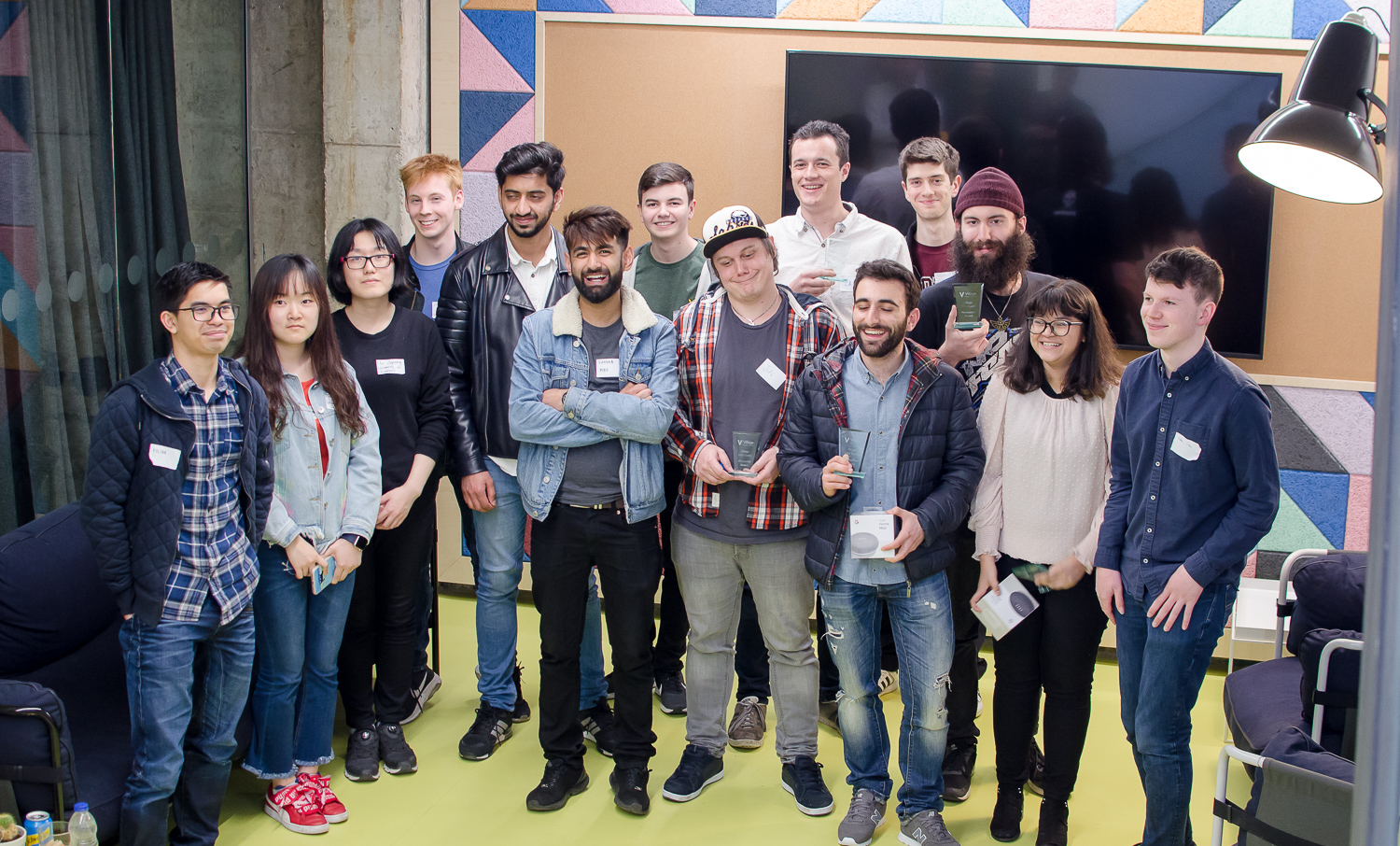Data Quest Round Up
Date: Monday, April 23, 2018
The first ever Village Data Quest is complete!
Data Quest is a programming competition conceived by the Business Intelligence team here at Village, aimed at raising the profile of Data Science in the North West of England and encouraging students towards careers in the field. On Friday we were joined by fourteen students, split in to seven teams, raring to show off their Business Intelligence and Data Science skills and earn glory for their respective universities.
Teams were handed four primary data files, each holding one million data points mapping out abundances of different commodities on a hypothetical island, plus a fifth, smaller auxiliary data file with mock historic values for those commodities. They were challenged to develop a system to hunt for the most valuable ten-by-ten group of cells within the larger thousand-by-thousand grid, with the complication that they would also have to extrapolate from the historic value data to work out exactly what each of the commodities would be worth to them. There was a time-based element to the challenge in that plot of land on the island could only be claimed by one team each, so there was a race to get the answers first.
The competition dataset has been given out and the questers are back in action - thankfully, we got some stress balls to relieve the tension, kindly provided to everyone by @Microsoft #DataQuest pic.twitter.com/23T6Bi15hu
— Village Software (@VillageSoftware) April 20, 2018
The grand prize, the Prosperity award, was granted to the team that made the most money under the rules of the simulation. This was won by Jiri Dohnalek and Edward Barker of the University of Liverpool competing as team Kadane. Kadane managed to choose plots that were far-and-away the most abundant and even if they’d sold their goods with the worst possible timings (they didn’t) they would have still won.
Teams were also asked to give a short presentation on how they approached the problem, what decisions they made, and the challenges that they faced. The team we felt communicated the best won the Persuasion award. This Data Quest, that award went to Iqrah Nadeem and Sean O’Mahoney of Manchester Metropolitan University, also known as Team Undefined. They had the clearest diagrams and didn’t get bogged down in slides full of code while managing to highlight their thought process well.
We offered one final Innovation award, for the teams that had the brightest ideas. This was the hardest to give out as in practice all the teams had settled on similar solutions. In the end, we gave it to PyDads, Katsanakis Orestis and Vatikiotis Konstantinos of the University of Liverpool who came third in the Prosperity rankings despite being rejected several times when trying to claim spaces that others had already planted their flag on. It reflects well on them that their solution was robust enough to keep re-evaluating successfully and quickly given the shifting tides of availability.
And here are the winners!!!
— Village Software (@VillageSoftware) April 20, 2018
Prosperity Award: Team Kaldane's Combinatorics
Persuasion Award: Team Undefined
Innovation Award: Team PyDads#DataQuest pic.twitter.com/8rLcuj8WJS
We’d like to offer our thanks to the other teams that came and supported the event. It wouldn’t have worked without you, and we hope you enjoyed and learned something from this event. Those teams were:
- Hu Zepeng and Zhang Jingxin, team M&B, of the University of Liverpool, who came second in the Prosperity standings and nearly claimed the Innovation prize
- Muhammad Qasim Khokhar Awan and Sayyab Muhammad, the A Team, of Manchester Metropolitan University, who made a great comeback after their technical issues by making the most of Excel’s conditional formatting.
- Oliver Legg and Daniel Taylor, Team Potato Coders, of the University of Liverpool, who had a lightning-quick system making them the first to give in their results, mere moments after the competition data was released.
- Robbie Coyne of Glasgow University and Lorenzo Jumilla of The University of Liverpool, who met on Friday for the first time ever to form Swell Data Quest. While they did come last, we suspect they might have reversed their X/Y coordinates when submitting their results because those alternative groups of cells performed much better.
Finally, we’d like to thank Sage, who provided Drones as part of the grand prize, and Microsoft who sent a box of stress balls (which were well used by the end of the day) and USB drives.
This was certainly a learning experience for us and we’ve already identified areas where we can improve and make things clearer. So keep an eye out for Data Quest 2, coming soon.
 About Us
About Us Services
Services Sectors
Sectors Case Studies
Case Studies Blog
Blog Contact
Contact


